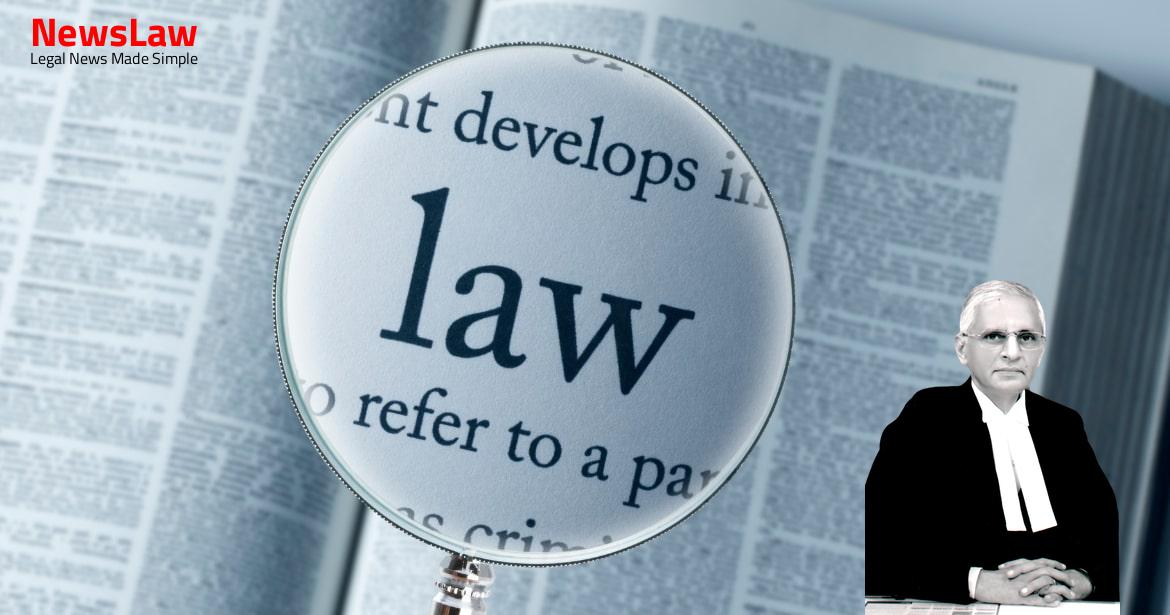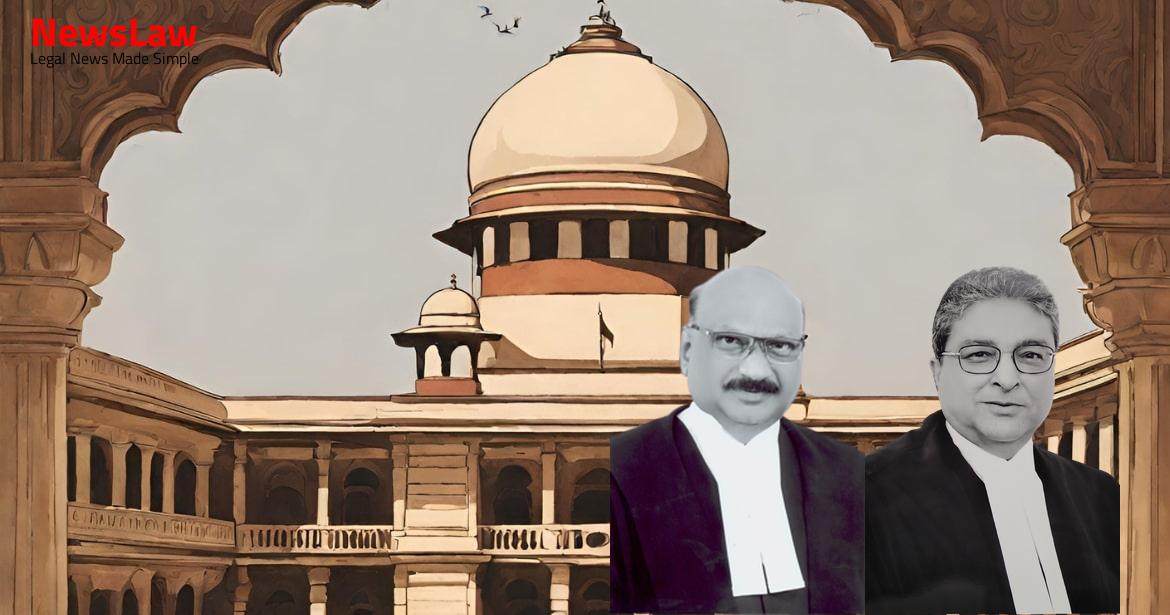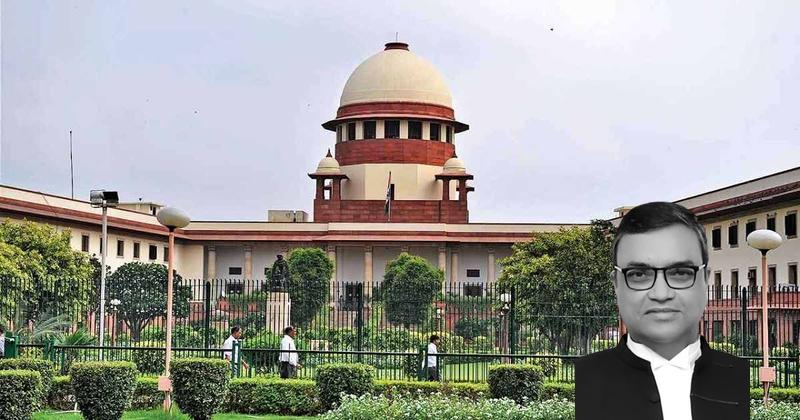The legal case delves into the intricate judicial review of delegated legislation within the education sector. It highlights the court’s scrutiny of regulations and policies governing the establishment of educational institutions. The High Court’s analysis unveils the complexities of balancing statutory provisions with fundamental rights, shedding light on the critical role of courts in upholding legal propriety in educational matters.
Facts
- Respondent No.1 requested reconsideration of its proposal, which was rejected by respondent No.2 in February 2012.
- Government of Rajasthan issued Essentiality Certificate to respondent No.1 on January 11, 2012.
- Respondent No.1 sought direction for reconsideration of its application for establishing a new Dental College for 2018-2019 academic session, but it was rejected by respondent No.2 in December 2012.
- Respondent No.1 requested reconsideration of its application for the 2017-2018 academic session, stating that the impugned Regulation did not apply to them, but this was also rejected by respondent No.2 in March 2013.
- Respondent No.1 filed a writ petition challenging the impugned Notification amending the regulations.
- Impugned Notification substituted Regulation 6(2)(h) with an amended version on May 21, 2012.
- Respondent No.1 further challenged the rejection of their application for reconsideration before the High Court.
- The Division Bench of the High Court allowed the writ petition filed by the respondent No.1 and struck down the impugned Notification.
- The High Court directed respondent No. 2 to reconsider the case of respondent No.1 in light of the observations made in the judgment.
- The appeal challenges the High Court’s decision dated 24 April, 2018, in D.B. Civil Writ Petition No. 3260 of 2017.
- The High Court found the impugned Notification to be inconsistent with the Dentists Act, 1948 and violative of Articles 14 and 19(1)(g) of the Constitution.
- The dispute arose from the respondent No.1’s application for establishing a dental college, which was initially rejected by respondent No. 2 due to deficiencies.
- The application was returned by respondent No. 2 on 6 January, 2012, with a demand draft of Rs. 6 lakh as deficiencies were not cured by the specified deadline.
- The writ petition was initially dismissed by a single judge of the High Court on 3 November, 2016.
Also Read: Presumption of Genuine Endorsements in Cheque Case
Arguments
- The petitioner submits that the High Court’s finding that the impugned Notification was violative of Articles 14 and 19(1)(g) of the Constitution of India is erroneous.
- Ms. Aishwarya Bhati, learned ASG, also supports the petitioner’s submission.
- She references the case of Dental Council of India vs. Subharti K.K.B. Charitable Trust and argues that the High Court should not have interfered with the impugned Notification as the Regulations were made by an expert body in accordance with the law.
- Shri Gaurav Sharma, counsel for the Council, argues that the High Court made a gross error in allowing the writ petition as the Council is a statutory body empowered to make regulations for various aspects of Dental Education.
- The Council amended Regulation 6(2)(h) for better teaching facilities and improved education standards, which was within its authority.
- The Division Bench’s decision that it was beyond the Council’s power to make delegated legislation is deemed erroneous by the petitioner.
- Petitioner argues that there is no medical college within 100 km of the proposed new Dental College location.
- Petitioner claims the Notification lacks connection to its intended purpose.
- Petitioner states there is a shortage of Dentists in the country, and more Dental Colleges should be encouraged.
- Petitioner argues that the Notification violates students’ right to dental education and respondent No.1’s right to establish an educational institution under Article 19(1)(g) of the Constitution of India.
- Counsel for respondent No.1 agrees with the High Court’s decision to quash the Notification.
Also Read: Medical Negligence and Compensation: A Landmark Decision
Analysis
- Division Bench failed to consider clause (g) of sub-section (7) of Section 10A of the Act.
- Subordinate legislation must yield to plenary legislation.
- Challenging subordinate legislation on the ground of arbitrariness can only be done if it violates the statute or offends Article 14.
- Regulation 6(2)(h) was amended to facilitate training of students in proposed Dental Colleges as per curriculum.
- Court should not concern itself with the wisdom of rules if they have a rational nexus with the statute’s purpose.
- Court should not substitute its opinion for that of the legislative body.
- Amended Regulation had a rational nexus with providing adequate teaching facilities.
- Dental Colleges established before and after the Notification form separate classes, differential treatment permissible under Article 14.
- The impugned Notification ensures proper academic standards and infrastructure.
- Council has taken relevant factors into consideration while amending Regulation 6(2)(h).
- Section 10A of the Act deals with permission for the establishment of new dental colleges and courses.
- Sub-section (5) of Section 10A provides for extending the period for furnishing particulars if required.
- Sub-section (7) of Section 10A empowers the Council to make regulations for the purposes of this Chapter.
- The Council and the Central Government must consider various factors listed in clauses (a) to (g) of sub-section (7) while making recommendations and passing orders.
- Section 20 empowers the Council to make regulations with the approval of the Central Government.
- Restrictions are imposed on establishing new institutions or courses without prior permission.
- The procedure for applying for permission to start new courses or increase intake capacity is outlined in sub-sections (2) to (4) of Section 10A.
- The Central Government’s permission is required and deemed to be granted for establishing institutions or opening new courses.
- No authority can start a new course or increase capacity without prior permission from the Central Government.
- Courts should not interfere in educational policy matters or academic decisions as they lack the expertise and technical background of professional bodies.
- The Division Bench of the High Court exceeded its authority by favoring unamended provisions over amended ones based on reasonableness.
- Subordinate legislation can be challenged under grounds like lack of legislative competence, violating fundamental rights, exceeding authority limits, being unreasonable, or violating the Constitution.
- The right to establish educational institutions can be regulated to ensure standards, infrastructure, and prevent maladministration but must satisfy the test of Article 14 against arbitrary actions.
- Delegated legislation must not be manifestly arbitrary to be struck down, as it is not held to the same degree of immunity as a statute passed by a competent legislature.
- High Court’s judgment not sustainable due to lack of judicial propriety
- One prayer challenges validity of impugned Notification, another seeks reconsideration of proposal
Also Read: Remand of Writ Petition for Restoration and Decision on Merits
Decision
- The Division Bench of the High Court granted a prayer for reconsideration of a proposal that had been previously rejected by a single judge of the High Court.
- The granting of the prayer was seen as improper due to judicial propriety.
- The Division Bench’s judgment and order dated 24 April, 2018, were found to be unsustainable.
- The respondent No.1 had previously filed a writ petition in 2016 that was dismissed by the single judge of the High Court.
- Despite the earlier dismissal, the respondent No.1 filed another writ petition in 2017 before the Division Bench, which was also dismissed.
- The series of petitions and rejections indicated a lack of grounds for reconsideration, leading to the dismissal of the appeal.
- No costs were ordered in relation to the appeal.
Case Title: DENTAL COUNCIL OF INDIA Vs. BIYANI SHIKSHAN SAMITI (2022 INSC 419)
Case Number: C.A. No.-002912-002912 / 2022



